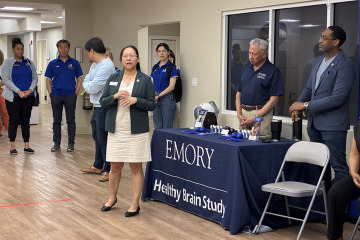Stockholm/Berlin, Oct 5, 2020 – Two Americans and a Briton won the 2020 Nobel Prize for Medicine on Monday for identifying the Hepatitis C virus, in work spanning decades that has helped to limit the spread of the fatal disease and develop antiviral drugs to cure it.
The discoveries by scientists Harvey Alter, Charles Rice and Briton Michael Houghton meant there was now a chance of eradicating the Hepatitis C virus – a goal the World Health Organization wants to achieve in the next decade.
The three share the 10 million Swedish crowns ($1.1 million) award for discovering and proving that a blood-borne virus could cause Hepatitis C, which afflicts more than 70 million people and causes about 400,000 deaths each year.
“This is enormous news – it will undoubtedly reignite efforts to eliminate Hepatitis C as a global threat by 2030,” said Prof. Gregory Dore, head of the Viral Hepatitis Clinical Research Program at the Kirby Institute in Sydney, Australia.
Nominations for this year’s award preceded the global spread of the new coronavirus pandemic, but the choice of winners recognizes the importance of identifying a virus as the first step in winning the battle against a new disease, said Thomas Perlmann, secretary general of the Nobel Assembly.
Perlmann said he had managed to reach Alter and Rice early in their day in the United States. “They were really surprised, happy and speechless,” he told reporters.
It’s the second Nobel Prize for Medicine to be awarded for hepatitis research after Baruch Blumberg won in 1976 for determining that one form of blood-borne hepatitis was caused by a virus that came to be known as Hepatitis B. Hepatitis A, which is easily treated, is transmitted by contaminated water or food.
“Before the discovery of the Hepatitis C virus it was a bit like Russian roulette to get a blood transfusion,” Nobel Committee member Nils-Goran Larsson said, adding that millions could now receive safe transfusions and blood products.
THREE STEPS
The shared prize recognizes research dating back to the 1960s when Alter, who was working at the U.S. National Institutes of Health (NIH), found liver disease could be spread by blood transfusions that weren’t caused by Hepatitis A or B.
It was a team led by Houghton, then working for pharmaceuticals firm Chiron, who was able in the mid-1980s to create a clone of a new virus from fragments found in the blood of an infected chimpanzee.
This virus, belonging to the Flavivirus family, was named Hepatitis C. Its identification made it possible to develop tests to screen blood bank supplies and greatly reduce the spread of the disease, which can cause cirrhosis and liver cancer.
The final piece of the jigsaw puzzle came when Rice, then at Washington University in St Louis, was able using genetic engineering to generate a version of the Hepatitis C virus and demonstrate that it alone could cause symptoms in a chimpanzee comparable to an infection in humans.
Alter is still affiliated to the NIH while Houghton is professor of virology at the University of Alberta. Rice led the Center for the Study of Hepatitis C at Rockefeller University until 2018 and remains active.
While the Nobel awards will go ahead as planned this year, they have been overshadowed by the coronavirus pandemic.
The Nobel Foundation has cancelled the traditional banquet, which forms the centre-piece of the celebrations in December, and will hand out the medals and diplomas in a televised event rather than live in Stockholm.
Medicine is the first of the Nobel Prizes awarded each year. The prizes for achievements in science, peace and literature have been awarded since 1901 and were created in the will of dynamite inventor and businessman Alfred Nobel. – Reuters







